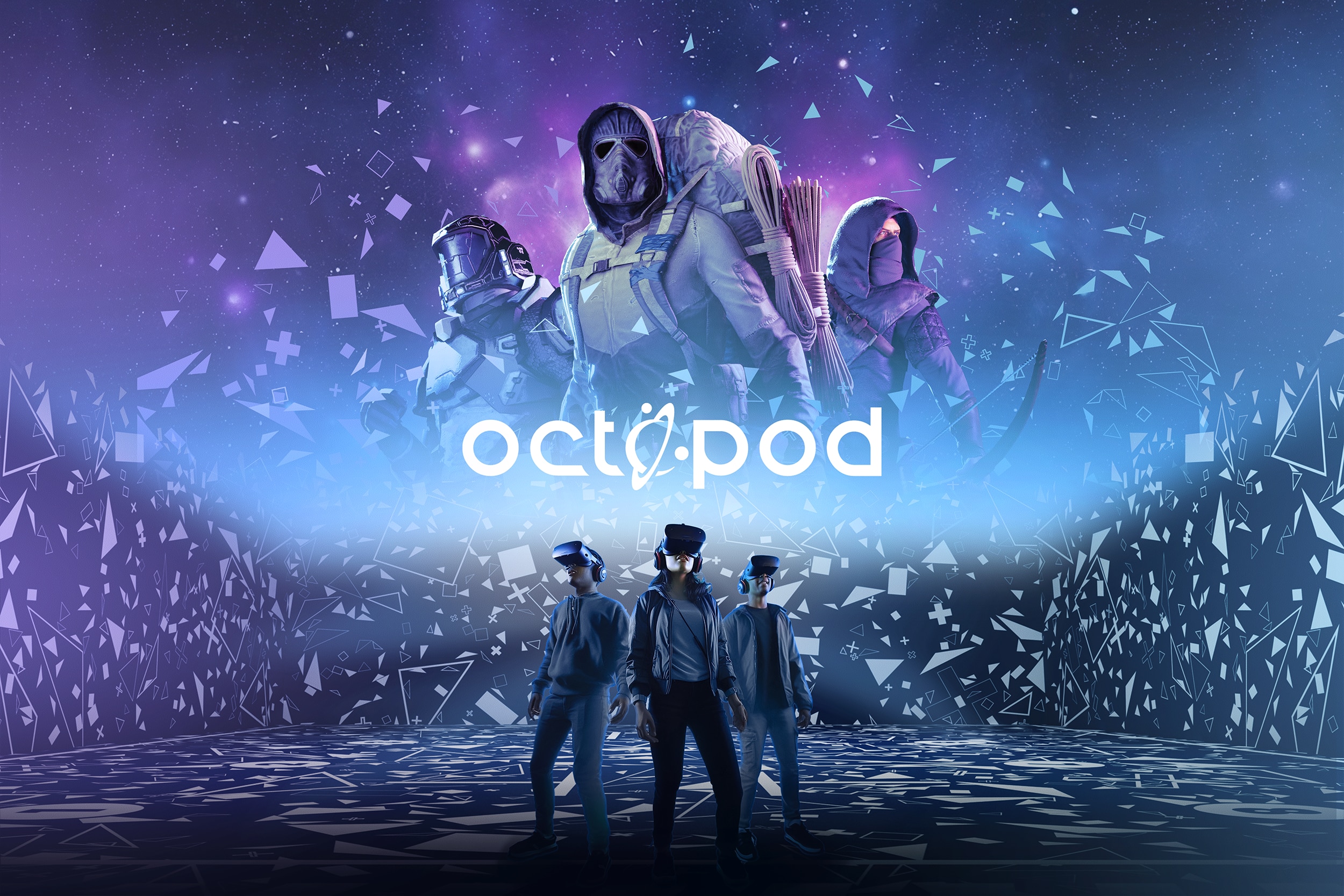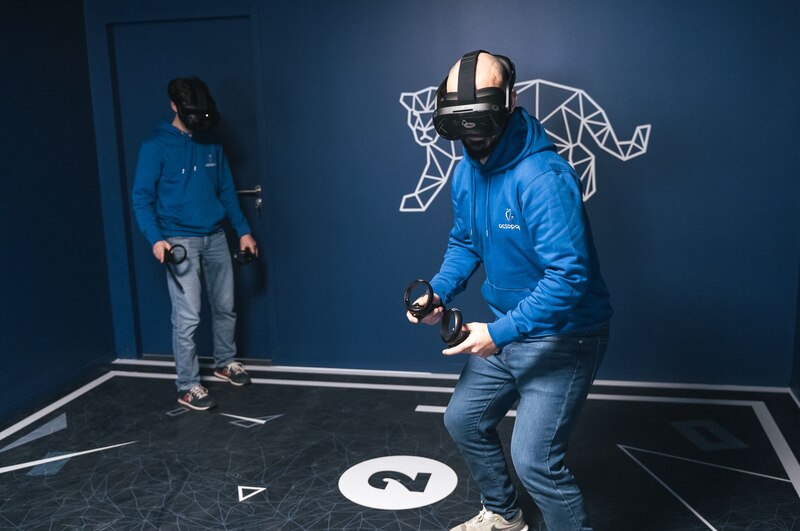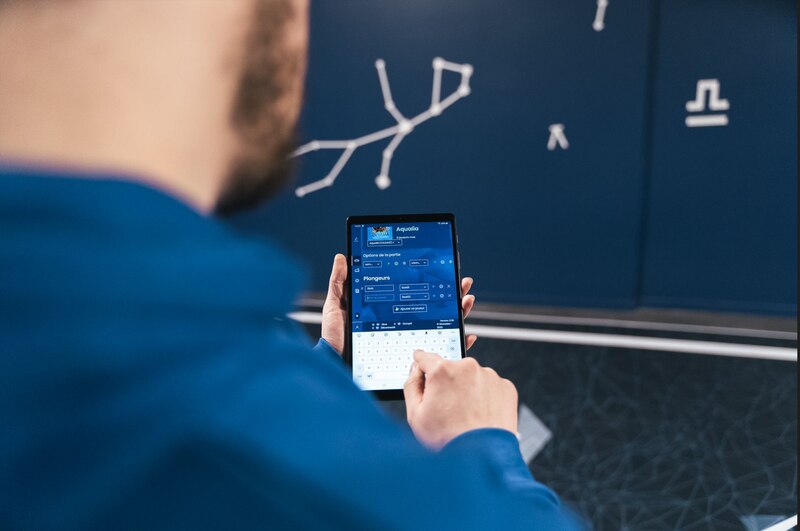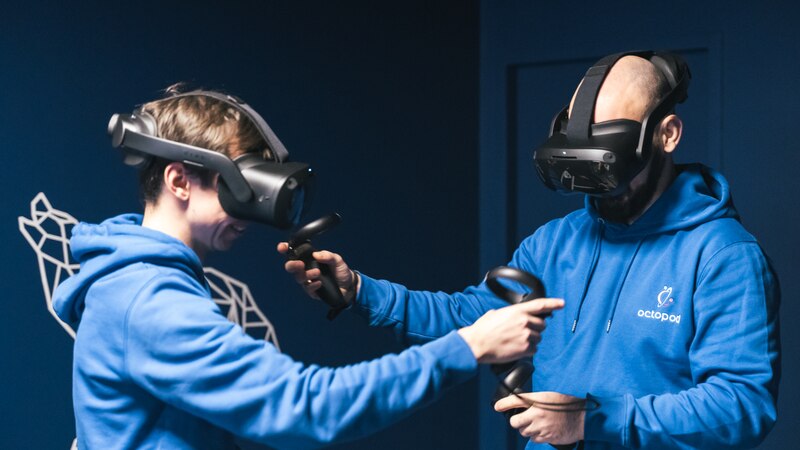Octopod redefines the VR gaming market for leisure centres

Location Based Entertainment | Article
5 minutes read
Successful Virtual Reality gaming centres do two things really well. The first thing, is that they have satisfied customers who not only enjoy playing VR games but enjoy doing so within a particular leisure centre. And because of that, they keep coming back. The second element is that they’ve managed to maximise the profitability of every square metre of their available space. This enables many centres to turn an unprofitable location into one that is financially sustainable. Octopod enables centre managers and games masters to simultaneously deliver on both of these fronts. Not only do they offer amazing VR experiences through their gaming solutions but have also developed an innovative modular approach that breaks a room down into zones.
As a result of this, a room can contain multiple different games, all at the same time, and the centre manager can easily manage the running of them, all through HTC VIVE Location-Based Software Suite .“We are a French team of enthusiasts united to offer the best of VR for the leisure market,” says Jean-Noël Charlier, Sales & Product Manager at Octopod. “This includes rich and varied games inside of a reliable, simple and efficient technical ecosystem.”This enthusiasm has led the team to create Octo:Gone; a VR gaming arena (40 or 80m²) where you can modulate the gaming rooms to accommodate up to 8 players simultaneously, equipped with HTC VIVE Focus 3 headsets, and play more than 15 great multiplayer VR games from different universes and game styles.

The Octo:Gone - An innovative solution
Octopod’s journey didn’t start there though. The birth of the Octo:Gone began during a conversation with a leisure centre operator who had multiple VR play areas from different vendors in his centre. He wanted to be able to provide high-quality, immersive VR gaming experiences for a large group of players, while still being able to truly modulate the space and equipment allocated to those participants.
Octopod saw this as a challenge worth accepting but they recognised that there were some obstacles they needed to overcome before turning the dream into a reality. These took the form of having to take into account the number of players already present, the equipment in use at the time, and the gaming zones available at that precise moment.
Therefore, the main objective of the Octo:Gone VR modular arena was to provide a software that would allow free roaming of VR game participants, while also being able to adapt to the number of players turning up at any point in time. They also wanted to create locations that would be able to offer all the games in their catalogue and add new ones in standardised, scalable spaces. M. Charlier expands on this, “we love VR games where you can move around freely, but we found that the amount of space monopolised by a group of players for a gaming session was sometimes too high (and therefore lowered the profitability per square metre of space).”

Octopod’s initial solution to this problem was built on HTC VIVE Pro and Base Station 2.0 technology and has been incredibly successful. Their offering gave centre managers the ability to deliver top quality VR experiences while at the same time ensuring every square metre of their centre could be utilised. As with any first iteration of a new idea though, there was always going to be room for improvement and Octopod started eyeing the possibility of upgrading their Octo:Gone – VR modular arena setup.
Partnering with HTC VIVE
Around the same time that Octopod were exploring new options, HTC VIVE brought their Focus 3 headsets to market. To Octopod this was more than just a product upgrade, instead they found a partner in HTC VIVE who could walk alongside them to develop exactly the right hardware and software for their particular setup. As a result, Octopod were able to preview the Location Based Software Suite (LBSS) tools and iterate and reflect hand-in-hand to find the best solutions over a number of months.
The nature of the VR gaming market is that the rules are still being written. Creators and entrepreneurs are having to figure out how to make their plans work and help ensure that the technology keeps pace with the expansion. This iterative and developmental approach is therefore vital as well as having a trusted hardware and software partner to make it all possible.
“In addition to producing a customisable headset, we felt that HTC VIVE's teams really listened to us,” explains JN Charlier. “They suggested and developed tools to meet as many needs as possible and despite our differences and language barriers, we were able to share ideas and iterate to find an output that brought value to our customers”.

Octo:Gone Mark II
Subsequently, with the evolution of hardware, the opening up of Wi-Fi 6E streaming, and the release of the HTC VIVE Focus 3 and its LBSS software environment, they conducted research and development in partnership with HTC VIVE to transition backpack PCs to wireless streaming of games over Wi-Fi on the HTC VIVE Focus 3.
This system consists of streaming a game from a stationary computer to the VIVE Focus 3 headset via a Wi-Fi 6E modem. This development means a gain in convenience for the consumer, who no longer has to carry heavy equipment around, and a smaller investment for the operator, who can more easily upgrade their PC configuration. It truly is a win for everyone involved. The benefit of the latest Wi-Fi technology is that games can be streamed without latency, a critical component for the safety and quality of the player experience.
The implementation was not without its challenges though. The first was to enable headset tracking (inside/outside) within customer environments. Using HTC's recommendations on patterns (type, colour, layout) and the headset's scanner tool, Octopod were able to create software to procedurally generate printable elements (walls, floor) inside partner centres.
The other challenge was to make steamVR's virtual map changes compatible with the new HTC VIVE Focus 3 system. After testing and discussion, they decided to use the VIVE Manager and VIVE Business Console (LBSS) tools to integrate them into the Octopod:Play launcher in a way that was visual, intuitive, and easy for our users to understand.
Charlier is particularly vocal about the new Room Manager feature. “The game master of a Location-Based Entertainment
(LBE)
Centre is now able to set up a game and send all the players in a session to the right virtual room at once, without any effort or complicated handling.” This new format has been well received by beta testers with customers using the base stations particularly appreciating the modularity that is now possible.
Octopod have succeeded where many others have failed. They have taken a proof of concept, industrialised it, and now after a lot of hard work are seeing it all come to fruition. They have simplified the day-to-day lives of all location based VR players and managers by being the technical experts who facilitate the adoption of VR in leisure and entertainment centres.
For additional information about our solutions and how they can benefit your specific challenges, please don't hesitate to contact us.